R.L. LaFevers's Blog, page 12
April 5, 2011
Official Release Day x 2!
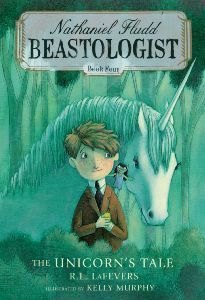
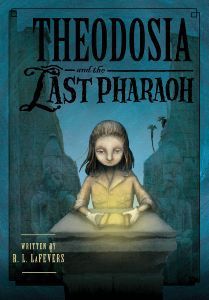
Ta da! It is the official release of BOTH Theodosia and the Last Pharaoh AND Nathaniel Fludd, Beastologist, The Unicorn's Tale.
Phew. And I have to tell you, it's true what they say about twins! It's twice the work. But worth it.
I'm also thinking we should have a giveaway. So...if you'd like to put your name in the hat to win a signed copy of both books, just say so in the comments to this post!
Also, if you'd like to read the first chapters of each, they can be found here and here.
*The contest will run for a week so I'll close comments at midnight on Tuesday, April 12.
Published on April 05, 2011 15:24
April 2, 2011
Writing is a Harsh Mistress
 I was cleaning up a pile of papers that has sat next to my computer forever, and stumbled upon this quote that I'd printed out. I had not made a note of where it came from, so spent half an hour googling and searching and found out that, of course! It was from the brilliant Barbara Samuel//Barbara O'Neal's speech that she gave at RWA Nationals in 2004. If you haven't read it, please do. If you have read it, go ahead and read it again. It always moves me--often in new and different ways.
I was cleaning up a pile of papers that has sat next to my computer forever, and stumbled upon this quote that I'd printed out. I had not made a note of where it came from, so spent half an hour googling and searching and found out that, of course! It was from the brilliant Barbara Samuel//Barbara O'Neal's speech that she gave at RWA Nationals in 2004. If you haven't read it, please do. If you have read it, go ahead and read it again. It always moves me--often in new and different ways. "She wants your experiences. Your brain. Your heart. Your soul. She wants to know that you will give her everything you have, whatever you have, when she needs it. She wants that secret you've never told anyone, ever. She wants that wound that can still bleed if someone brushes it by accident. She wants your pain and your bone marrow and your joy and every desire you've ever known."
Yes. This. Every time I read this I am reminded that I truly must give everything to the page in order to produce my best work.
Published on April 02, 2011 18:08
March 29, 2011
The Science of Free Will

As a writer, one of the things I am most fascinated by is human behavior, the choices we make, why we make them, what calls or pushes us to one action and prevents us from making another. What drives the human psyche?
 Wikimedia CommonsBecause the truth is, our preciously held and highly valued ability to make free, independent decisions might not be as clear-cut as we thought.
Wikimedia CommonsBecause the truth is, our preciously held and highly valued ability to make free, independent decisions might not be as clear-cut as we thought.For the longest time, human actions and choices were viewed in the simplest of terms: good versus evil, right vs. wrong. To early church fathers, free will was a hotly debated topic. If all events had been predetermined by an omnipotent god, how can our wills ever be free? In medieval thought, a human's will was very much a battleground between God vs the Arch Fiend as they wrestled for a man's soul—and the ability to make his choices for him. During the Reformation, Martin Luther declared free will a fiction as all human actions were predestined by God.
In the 20th century, our understanding of will took on entirely new layers and complexities with the birth of psychology. With the work of Freud and Jung, much of what had once seemed like willful bad choices or evil, now had an explanation in the intricacies of the human mind: unconscious, subconscious, repression, and transference, not to mention the id, ego, and super ego.
But modern sciences have come to shed even more light on an already vastly complex subject. It turns out that our wills are not nearly as free—or as independently minded—as we once thought. Highly complex creatures that we are, we are subject to a host of signals, input, feedback, and influence that we never suspected.
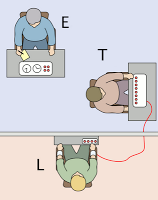 Wikimedia Commons: WapcapletWe now know that we are greatly influenced by the people around us; their actions affect our actions in ways we are often not even aware of. In a famous experiment conducted by psychologist Stanley Milgram in 1963, test subjects were required to administer electric shocks to various learner's when they failed at their tasks. The willingness of people to do what authorities told them to do, regardless of the perceived harm, showed just how susceptible we are to authority figures and the need to conform.
Wikimedia Commons: WapcapletWe now know that we are greatly influenced by the people around us; their actions affect our actions in ways we are often not even aware of. In a famous experiment conducted by psychologist Stanley Milgram in 1963, test subjects were required to administer electric shocks to various learner's when they failed at their tasks. The willingness of people to do what authorities told them to do, regardless of the perceived harm, showed just how susceptible we are to authority figures and the need to conform.In Malcolm Gladwell's book BLINK, the author brings us even more subtle ways in which this sort of influence takes place. In the book he ably dissects gut reactions and our concept of instinct and exposes the sometimes unpleasant underbelly of what goes into our 'gut' response and shows us just how subject to undue influence we can be. It turns out we humans can easily be conditioned and primed by the environment around us. In experiment after experiment, people were shown to be primed. Tall men were often found to be positively associated with leadership roles and consequently achieved higher positions within companies and earned more. Even more disturbingly, these sorts of influences aren't limited to how others see us–they can greatly influence our self perception as well. Gladwell cites another experiment conducted by Claude Steele and Joshua Aronson. When African Americans were asked to identify their race before taking a difficult, standardized test, their correct scores were cut in half.
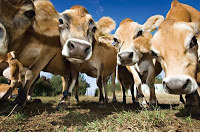 istock photography
istock photographyJames WhittakeThe choices we make can be radically different when we are surrounded by groups of people. Whether this is due to the contagion theory or collective effervescence, the phenomenon of mob mentality has been with us for a long time. People will often act differently in a crowd, often in irrational, sometimes violent ways. Even matters of taste and artistic preferences are influenced by others–and not merely in the form of highly respected cultural reviews. Our taste in these things can be influenced by even anonymous opinions. Experiments have shown there is a cumulative advantage when judging creative merit–the opinions of others is often a huge factor in whether or not we ourselves like certain music, books, and art.
And as if all those behavioral and psychological components weren't confusing enough, neuroscience and genetics are shedding light on an already highly complex dynamic. More and more scientists are learning that our brain makes decisions before we are even conscious of them, questioning just how 'freely' we make those decisions.
 Wikimedia Commons
Wikimedia CommonsDennis MytsAs they continue to decode our genes, scientists have made some interesting discoveries. In addition to a handful of inheritable diseases, there are more and more seemingly random diseases for which people carry a genetic predisposition, illnesses like cancer, obesity, infertility, or heart disease.
And what are we to make of cellular memory? Some think it is a pseudoscience at best, and yet what about the inexplicable events and choices we seem to have no power over, that are seemingly made for us? In one family I know, a shocking number of members have died just after turning fifty—but from a variety of causes: a railway accident, artheriosclerosis, a car accident, cancer, a heart attack. No where near enough of a pattern to be able to attribute it to health factors, but a very strong sense of predestination overshadows that family. In another family, a startling number of them have married perfectly healthy people, only to have those spouses develop major, chronic illnesses. Situations like this often have me pondering the idea that we are destined to live our lives over and over until we reach a state of enlightenment that takes us to the next level. But what sort of enlightenment is required to stop unknowingly marrying sick people or avoiding premature death?
However, even with all the neuroscience and genetics and psychology, there is still something fundamentally unknowable about where our deepest decisions and truest choices come from. Behavioral geneticists attribute only about 40% of our behavior to actual genetics, with 10% attributable to a shared family environment. That leaves up to 50% of our behavioral tendencies to an unshared environment, and that's where the truly interesting stuff happens. What causes one sibling who has suffered abuse to perpetuate that cycle of abuse, while another is able to stop it? What part of their environment was different enough to give one person the strength to choose a different path?
The truth is, I don't have the answers. For me, it's asking the questions that has value. Being aware of all the factors that go into our choices makes us all the more able to strip away undue influence or hidden pressures so that our will can be as freely ours as is humanly possible. I suspect there is no definitive no answer and our understanding of all the factors will be in a state of flux and discovery for generations to come. Human will defies theologians', psychologists', sociologists', and even neuroscientists' explanations. We are more complex than that. We encompass all those aspects—and more. Each decision we make, each choice we act upon is a complex alchemical* brew of social, neurological, genetic, and, psychological processes, stirred together with a heavy dose of The Unknowable.
Which is what makes us such fascinating beings. And something I'll try to keep in mind the next time one of my kids gets in trouble.
*For you science purists out there, I am kidding. I only ever use alchemy to turn my surplus lead into gold. I would never use it for something as important as making decisions. For that I always read entrails…
[originally posted on GeekMom]
Published on March 29, 2011 11:55
March 18, 2011
Guest Blogging Today
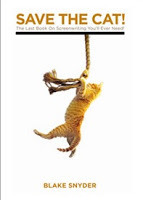
I was very excited to be asked to guest blog today over at the official Save the Cat blog! As you guys know, it's one of my favorite plotting tools ever.
Published on March 18, 2011 08:15
March 11, 2011
A Whopping Dose of Random...
 I went to the chiropractor today as part of my Full Body Tune Up so that I can still be writing when I'm seventy. As we were chatting away, he asked me if I felt I'd 'made it', which had me stopping to think. With as much as I think about this stuff, you'd have assumed I'd have a firm marker in place for that, but I didn't. I started to say once a person hits the bestseller lists, but even that must seem tenuous, once you're there. But as we talked, I realized that I've started to feel like this whole wonderful gig isn't going to be snatched away come morning. Maybe that's as close to feeling one's made it as one gets in this business.
I went to the chiropractor today as part of my Full Body Tune Up so that I can still be writing when I'm seventy. As we were chatting away, he asked me if I felt I'd 'made it', which had me stopping to think. With as much as I think about this stuff, you'd have assumed I'd have a firm marker in place for that, but I didn't. I started to say once a person hits the bestseller lists, but even that must seem tenuous, once you're there. But as we talked, I realized that I've started to feel like this whole wonderful gig isn't going to be snatched away come morning. Maybe that's as close to feeling one's made it as one gets in this business.###
I also happened to notice my chiropractor's hands today. He's a big, burly guy--a record holding power lifter and it shows in his hands. They actually reminded me a lot of my husband's hands, who has worked as a heavy equipment mechanic for a number of years. I realized that made a strange sort of sense since a chiropractor is pretty much a mechanic of the human body.
###
An unanticipated consequence of having two new books out next month as well as two new paperback editions is that I have author's copies piling up here in my living room at an alarming rate. At last count I had a combined total of NINETY books! I feel a number of contests and giveaways coming soon....
###
I think I forgot to post my very cool news here! I mentioned it on Twitter and Facebook, but I don't think I talked about it here.
Nathaniel Fludd, Beastologist: The Unicorn's Tale is on the Spring 2011 Indie Next List! Hurray, Indies! And thank you!
And Theodosia and the Eyes of Horus has been nominated for an Agatha. Yep, that's my name next to John Grisham and Kathy Reichs! Huge thanks to Malice Domestic for this honor.
###
Oddly enough, literally everyone I met and talked to yesterday was in a horrible mood. I'm wondering if it was the impending earthquake we were all sensing.
Also? In spite of the three of us here in the house having had horrible, rotten, foul mood days, within about 5 minutes of sitting down at the dinner table, we were laughing. There is no miracle like that of a wonderful family.
Published on March 11, 2011 22:16
March 5, 2011
Peeking Out of My Hermit Cave
 It has been brought to my attention that I have been very quiet lately, and yes, I have. This book is being a bit of a bear to start—for many reasons. A primary one being that it is dark, dark, dark. And I shrink from all that darkness. But try hard as I might to pull it in other directions, that's where it wants to go. So it has taken me the last two weeks to give myself permission to write the first draft as dark as I need to then, I assure myself, I can lighten it up in subsequent drafts. I mean, that IS the advantage to being a multiple drafter, right?
It has been brought to my attention that I have been very quiet lately, and yes, I have. This book is being a bit of a bear to start—for many reasons. A primary one being that it is dark, dark, dark. And I shrink from all that darkness. But try hard as I might to pull it in other directions, that's where it wants to go. So it has taken me the last two weeks to give myself permission to write the first draft as dark as I need to then, I assure myself, I can lighten it up in subsequent drafts. I mean, that IS the advantage to being a multiple drafter, right?But I feel like I'm stumbling along in fits and starts, feeling awkward and cumbersome. To help me through this clumsy, graceless stage, I am rereading the classics: BIRD BY BIRD by Anne Lamott and ON WRITING by Stephen King. They are hugely helpful and I am very much enjoying and soaking up these gentle encouraging voices full of bone deep wisdom. It is wisdom that I seem to need right now. Lamott, in particular, seems to be speaking right to me.
But also, as I struggle to hear the faint glimmerings of these new characters in my head, I need to tune out some of the voices on the outside because that noise and commotion draws too much of my attention. When I turn down the volume of the external world, it is much easier for me to hear my emerging characters. So I am alive and well, just…pensive. And quiet.
I've never needed quite this much psychic exclusion to start a book before, but I've also never written anything this tortured, so it makes sense. It is probably not surprising that these books did not demand to be written until my children were grown and self sufficient. To counteract all this sturm und drang, I am spending lots of time walking in this world, enjoying my family, reminding myself that old wounds do heal, lives that seem dark can find hope, essentially doing whatever I need to do to keep the nature of this book from overwhelming me, while still giving it the nurturing attention it needs to be born. A bit of a juggling act, actually.
Also? I am trying to be ergonomically savvy. The older I get the more aware I am of the wear and tear the act of writing and mousing and typing and sitting for hours on end has on my body. I had an ergonomics specialist come the other day and evaluate my process and stations and retweak everything. I want to be able to do this for another twenty or thirty years, so I need to make sure I'm not over stressing various joints, tendons, and muscles. Which is pretty much guaranteed if you spend nine hours a day on the computer, so I've just been cutting back in general.
Published on March 05, 2011 20:37
February 25, 2011
Children: Natural Born Storytellers
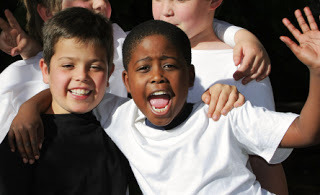
Anyone who has ever watched children play knows they are not merely building with blocks, squishing clay, or coloring with crayons. They are telling themselves a story the whole time, building a world and creating characters as they "play". Because of that natural born love of a good story, it often doesn't take much to nudge a kid into a full scale writing geek.
I am often invited to schools to do presentations or author visits, usually with the hope that meeting an author will help get kids fired up about their own writing. Whenever I do these visits, I always ask the students the same question: Who likes to write? Around 50% of the kids raise their hands. When I ask the question again, this time adding, "Who likes to write if you get to ignore all the rules," 98% of the kids raise their hands. Hugely different response!
The following tips are designed to help remind your child—and yourself—that writing can also be a form of play; to help turn them into a story geek rather than a writing robot suffocating under too many rules. The goal is to reinforce those parts of writing that equal play in your child's eyes and ignore the rest.
Let them give rein to their natural enthusiasm and sense of play by ignoring the writing rules that make it feel like work. You want them to get in touch with that intuitive part of themselves that recognizes that writing and creating can be play. Rules can always be taught later, but a sense of joy, once lost, is very hard to recapture.Invest in nice quality notebooks and pens. It's easy to dismiss the very kinesthetic pleasures of writing—the feel of a silky pen flowing across thick, smooth paper. High quality pens and notebooks can bring that extra pleasure to the act of writing. Plus it signals to them that this is a valued activity, one that can feel good physically and one that the adults in their lives value enough to indulge them in.Give them permission to not show anyone their work if they so choose (even you!). Some people need absolute privacy in which to experiment and risk failure, especially children who are used to doing exceptionally well at things.Do not critique their writing, even if they beg you. If they are dying for feedback, let them know what they did really well. Or better yet, ask them which part they had the most fun doing.As hard as it is for us adults, do not weigh down your child's writing with your desires, dreams, and ambitions. If you child loves to write and spends hours writing, do not begin pushing them to become a writer or enter writing contests or in any way burden their writing with expectations of careers or publication. Let writing be one area of their lives that is process oriented rather than result oriented.
[Originally posted at GeekMom.com)
Published on February 25, 2011 13:48
February 19, 2011
Bag of Tricks
 I talked the other day about my handy dandy back of tricks that I use to coax my characters and stories to reveal themselves to me. As promised, I'm going to detail some of those in this post.
I talked the other day about my handy dandy back of tricks that I use to coax my characters and stories to reveal themselves to me. As promised, I'm going to detail some of those in this post.One of those is the brilliant old faithful by Debra Dixon, Goal, Motivation, and Conflict.
It's a simple concept, one that is often overlooked due to its very simplicity. If you haven't read Deb's book, do try to find a copy to check it out because the depth with which she explains the concepts are very worth it.
Basically, Goal, Motivation, and Conflict (GMC) is making sure you know your characters EXTERNAL goal (what she wants) MOTIVATION (why she wants it) and CONFLICT (what's standing in her way). IN ADDITION to knowing and understanding her INTERNAL goal, motivation, and conflict. The thing is, lots of us might want to be writers or senators or nurses, but chances are we all have very real, very unique, very private reasons we want those things. Doing this exercise ensures that you know what makes your character tick.
When thinking of an INTERNAL goal, it helps me to reframe that as the question, What is lacking in my character's life? What does she need to be fulfilled as a person? What Life Lesson does she need to learn?
I think of the internal motivation as the reason she needs to learn this lesson or the reason she has this great, gaping emotional hole in her life. What bad messages or poor choices she's made in the past that have kept her from achieving fulfillment. And lastly, the internal conflict can be a couple of things: It can be what is compelling her to hang on to those old messages/lessons that keep her from moving forward, or what event/catalyst has to occur in order to move her forward emotionally.
Make a grid on a piece of paper and see if you can fill in those elements for your character. Even if you think you know them, oftentimes they change or solidify or evolve over the course of the story.
The second tool I use to suss out my characters is a cheat sheet I made from Donald Maass's book, WRITING THE BREAKOUT NOVEL. He poses some great questions in that book, questions that really help me grow my plot from the seeds of my main character. One of the questions I work with in the beginning is: Define what truly matters to my character. Does she have a tortuous need, consuming fear, aching regret, passionate longing, burning desire, inner lack? (You can probably see that this ties directly into the INTERNAL goal from the above GMC.)
And next I begin character journaling. I begin writing about that character's emotional scars and wounds. I poke around in her distant past to find out what might have caused them, how they developed, why they didn't heal. The truth is, often two different people can experience a similar event--or the same event--and only one person is affected or traumatized by them. Because we all have different emotional baggage we're carrying around. I try to get at the heart of why THIS problem is so cataclysmic for THIS character that it tilts their world (either their inner world or their external world) on it's axis.
I try to become that character and see what my subconscious sends up in the way of character memories—often very surprising things bubble up—things that I did not consciously plan or think of, but are perfect nonetheless. Some questions I use to get started are:
When did things begin to go wrong for her? In what way? What were things like just before they went wrong? How did she try to fix things--if she tried at all?
Another big benefit to journaling is that it helps me get familiar with the character's voice. It's like warm up drills on the piano keys before busting out into Rachmaninoff.
But for the last few books, I've been using other resources besides writing and plotting tools; I've added psychology books into the process and boy, is this helpful when I'm flailing around, trying to define my characters and their problems and their ultimate arcs. As I mentioned a few months ago, THE HERO WITHIN was invaluable as I wrestled with Ismae's story in medievalteenassassin#1. This time around, it is Clair Pinkola Estes WOMEN WHO RUN WITH WOLVES that is saving my bacon for this second assassin book. Having said that, I think WWRWW works especially well for me since I write fantasy. Not sure how much help it would be if I wrote contemporary, realistic fiction.
As I leafed through WWRWW, I found invaluable clues to my character and not only what is at the root of who she is and why she behaves how she does, but what she will need in order to heal and grow. One thing I stumbled on this time around that I don't remember reading before was the author's descansos exercise. The book—and the exercise—is intended for individuals but I'm going to do it for my character. And that is, to make a timeline of all the little deaths of spirit and psyche my character has suffered (and she's had a LOT—her past is very, very dark). Note each huge heartbreak and betrayal—whether actual or emotional, pay attention to where she felt abandoned or ignored, where she was forced to do things that were totally against her nature. Because all of those things that happened in her past inform who she is in the NOW of the story. They will give me the knowledge I need in order to understand how she will behave and react during the events of the story.
So now I've got all the subconscious juices flowing—and in the direction I want them to be flowing—and words and pages are accumulating at a satisfying pace. However, lest I end up with too sprawling or shapeless first draft ( I need something to let them flow into. That's where the SAVE THE CAT template that I talked about a couple of weeks ago comes in. And I'm going to talk about how I marry those two together next week. But while you're waiting, go and try a couple of these exercises and see how they work for you. Especially if you're stuck or having a hard time bringing a character to life. Or if any have a similar types of exercises you use to help bring your character to life, I'd love to hear about them! I am crazy for writing exercises and processes. ☺
Published on February 19, 2011 17:48
February 12, 2011
Thinking, Stewing, Fermenting, and Percolating and the Joys Therein
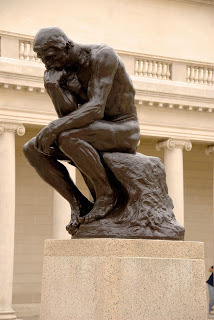 For the past week I've been cogitating on the necessity of thinking to the writing process—or at least MY writing process. And then a few days ago I came across a blog post where someone was talking about how what people NEEDED to do to be a productive/professional writer was to sit down and write one page in an hour. They had done the math, you see. They figured out how long it takes to write an email and computed that into how long it would take to write a page, and if you did that three times during the day, voila! You would have a book—or three—by the end of a year. Mind you, this was a professional writer who made his/her living at writing. They firmly believed that all this thinking and researching and note-taking were simply procrastination measures and by and large useless and not-necessary.
For the past week I've been cogitating on the necessity of thinking to the writing process—or at least MY writing process. And then a few days ago I came across a blog post where someone was talking about how what people NEEDED to do to be a productive/professional writer was to sit down and write one page in an hour. They had done the math, you see. They figured out how long it takes to write an email and computed that into how long it would take to write a page, and if you did that three times during the day, voila! You would have a book—or three—by the end of a year. Mind you, this was a professional writer who made his/her living at writing. They firmly believed that all this thinking and researching and note-taking were simply procrastination measures and by and large useless and not-necessary. It was all I could do not to pull my hair out by the roots and scream at the computer screen.
It would be one thing if this person had made it clear that it was THEIR process—but to extrapolate it out to the writing public at large was, at best irresponsible, at worst egotistical.
I have written over twenty books, and published thirteen of those. The longer I am involved in this writing gig the more convinced I become that the actual writing—putting pen to paper or fingers to keyboard—is sometimes only 20-30% of the writing process. Not because I'm avoiding anything or letting myself be sidetracked, but because good pages don't just happen. They are thought about and pondered over. They stew and ferment and percolate. This is especially true as my books become longer and more complex. Depth and nuance doesn't (usually!) just fall from the sky in a burst of inspiration while I happen to be pounding out my 250 words per hour. It can, but it doesn't always. Most often, you have to go out and hunt depth and layers and subtext and club it over the head, drag it home, and then finesse it into your WIP.
Their point was that fast writers were much better and more likely to be true professionals that slow writers. Gah. Of course, that doesn't even address the issue of those of us who write some books slowly and others quickly…
The funny thing is, I was wrestling with this very issue before I even stumbled upon this blog post. I had set my Start Date for the medievalteenassassin#2 as Feb. 1. As I said, I'd been gathering research materials and making notes and blocking out the big picture plot things. But try as hard as I might, the story egg was NOT ready to crack yet. Was. Not. Now sure, I wrote a couple of pages. And I could very easily have forced myself to stay there and write X number of pages until I have five pages each day. But what sort of pages would they be? The wrong ones, ones leading into a story I didn't want to tell. Now sure, you can always fix a bad page—but sometimes committing too early to the wrong story is not helpful. Besides, I could have blindly put words on paper that had no depth, no nuance, no layered meaning, and no subtext, but whatever is the point?
So instead, I pulled out my bag of tricks that I fall back on time and time again to help dig around until I find my character and story. (My next post will detail those tricks—I pinkie swear!) Some, like the above referenced blog poster, would call that procrastination. I call it assembling the material from which I plan to craft my story. Sure, one can build something using any old materials one has on hand. Or. One can look long and carefully for the right materials, the ones that compliment and contrast, provide shadows as well as illumination, and are the best quality—the strongest and most aesthetically pleasing materials one can find.
All this ruminating and mulling bore rich fruit. I quickly realized I had started in the wrong place. Once I made the adjustment and backed up, the pages came much, much more easily. Where I had been eking out two painful pages a day, when I backed up and did the necessary story and character work, I was able to write 20 pages in three days. Not a record, by any means, but much more free flowing when they came from the right place. They are still first draft pages, but they have the bones and sinew of the story I am trying to tell, rather than no relation to anything I'm trying to convey.
So the point I am trying to make is that, no, there is no one formula or approach one has to take in order to be a professional working writer who can support themselves with their writing. Ignore anyone who tells you otherwise.
Published on February 12, 2011 14:53
February 5, 2011
The Speech Heard Round The Kid Lit World
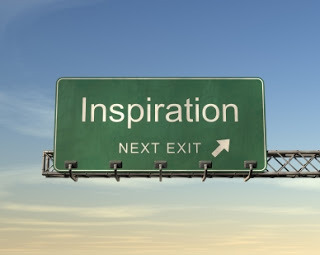
Last week at SCBWI's New York conference, Sara Zarr gave a speech that resounded powerfully with writers everywhere. The crux of the speech was about reclaiming our creative life from the demands of the market and the business side of publishing. There is a great recap of the speech here and here. It was a hugely important speech, and one that I think many, many writers needed—and wanted—to hear. To be given permission to put creativity front and center in their careers again.
I actually feel that I have done a fairly good job of arranging a creative life that sustains me. However, a couple things she said really resonated.
Most of us need to stop doing half of what we're doing and start doing the other half well.
Yeah, I'm doing too much. I know it. I had hoped by giving myself a month off before starting a new book, I could get caught up and maybe even get ahead. And I did in a couple of areas, but not others. Some days, I am pulled in so many different directions, I hardly know where to start. I don't think I can quite give up half of what I'm doing, but I can pare way down.
I'm going to cut way back on Twitter and, I think, give up Tweet Chats. Not that I've participated in all that many, but it is a bit of a mental pull, and that part I can eliminate. I'll still pop on there occasionally, but I won't try to catch up with everyone all the time.
I'm reducing my blog reading by 2/3. Out with all the industry and publishing news, the declarations of the death of the printed book, and the age of the E-Reader. I will keep up with one particular online series, because I think as an author I need to be informed, but not assaulted, which is how I feel sometimes with so much news. And is, now that I think about it, one of the downsides to Twitter—we are absolutely assaulted with news and links.
And yeah, thinking about doing a year long writing workshop here on the blog was a tad overambitious, especially with my Shrinking Violet and GeekMom commitments. Even more difficult though, was I can't use samples from my work in progress, but the time required to figure out new examples was too much, and even worse, created a second story running through my head, crowding out the work. So I am going to give that up. I will still post craft stuff as I deal with it, but it won't be quite as structured as I had hoped. Also? I will quit beating myself up when I don't manage to get a new blog entry posted every week.
A creative life must be sustainable.
And frankly, as I get older my wrists and shoulders are barking at me to spend way less time on the computer. Not just on the computer, but writing in general. I get thumb sprain and index finger strain from writing so much with a pen. My wrists begin flirting with carpel tunnel when I spend too much time on the keyboard, and my shoulders are sick of mousing. So even though I don't battle the M&M bowl, my current set up is not sustainable, at least not as far as my body is concerned.
It is hard, because I do so much research on the computer. Not just for the books, but for everything—colleges, health issues, politics, current events. Every little fact that crosses my path I usually feel compelled to research. Clearly I need to give some of that up and step away from the computer. So I'll be doing a lot of that in the next few weeks as well as hiring an ergonomics person to come in and help me set up the most ideal environment for my aging joints.
A creative life should be engaging, expanding, not reduce you to word count and computer.
I have written three books a year for three years, and while I knew that was a sort of hyper-accelerated push, it is also important to realize it was not, nor was ever meant to be sustainable. I am feeling a huge need to step back into real life. It is so, so easy to default to the relationships I have online. I'm an introverted hermit, after all. But I want to do more walking and hiking and have weekly artists dates outside the house, spend more time with my parents and friends. Maybe do some volunteer work. Being so deeply in my writing cave for so long was exactly what I—and my career—needed. But now the need has passed and it's time to expand my world once again.
So those are the thing that Sara Zarr's speech gave me permission to do. What about you? Did her speech inspire you to shift things in any way for yourself?
Published on February 05, 2011 10:11



